
views
- You’re probably ready to retire if you’ve stopped enjoying your current job, find that it no longer gives you the passion it once did, or feel behind in the industry.
- Take a cue from friends or family who tell you that it’s time to retire, and also don’t ignore that gut feeling that has you daydreaming of adventures outside of work.
- Prepare for retirement by saving 10% of each paycheck and planning hobbies, travels, or volunteer efforts that will give you some post-work purpose.
Emotional Signs You’re Ready to Retire
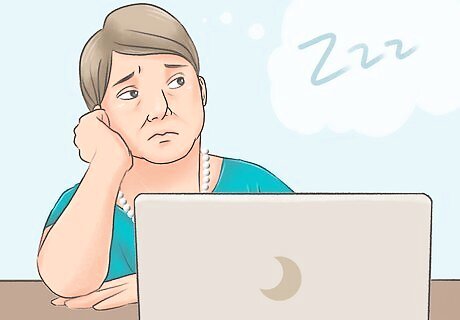
Your job has become boring or hard to focus on. Burnout is real, and it can happen to you. Maybe after so many years of working the same position, you’ve seen it all and nothing really surprises you anymore. And when there are no surprises, your enjoyment of your job plummets. It gets hard to bring yourself to do the work the way it ought to be done, and the minutes stretch into hours. It could be time for a change of pace. Consider taking a much-needed vacation to handle your burnout. If you come back and find that you’re still in the doldrums, it’s probably a sign that it’s time to make that vacation permanent.
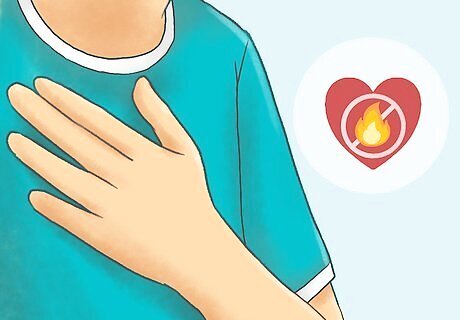
You’ve lost your passion for the job. When you first started, your job might have been your reason to get up in the morning. You savored the opportunity to get things done, and you were proud of what you accomplished. Recently though, your job doesn’t offer that sense of meaning or purpose it once did, and you may find yourself looking elsewhere for fulfillment. If purpose is what you look for in a job, you may consider retiring, then finding a new career, one that gives you that spark. Or, use retirement as a way to find that spark elsewhere, like in hobbies or volunteer work.

You feel like your job has left you behind. It could be that your regular office turnover has made you one of the “old guard” in a sea of new faces, and the vibe at the workplace isn’t the same. Or, every industry makes advances, and sometimes those advances tend to leave many of us feeling like we’re not doing the job we signed up for. If you sometimes have the urge to train a successor who you feel might be better equipped for your job, retirement might be in your cards. This sign is especially true if you feel that management has sidelined you into a lower-stakes position to make way for new hires. It’s nice of them to keep you around, but maybe the writing’s on the wall, and that writing spells “retirement.”

Work is taking time away from your personal life. Our priorities shift over time, and while you once felt comfortable dedicating much of your time to your job, now you might want to spend more of that time with your significant other or your family. Life is short, and you want to make the most of it, and the way to do that could be retirement.

Your family and friends tell you it’s time. Retirement typically spells more time with your spouse and family. If your partner pines for more evenings out, or your kids are disappointed that you’re working when they come visit, you may be in need of a lifestyle change. And if they’ve told you flat-out that they think it’s time for you to retire, that’s a pretty clear sign itself. Often, an outside perspective is the most sensible one.

You keep daydreaming about retired life. You clock in and get to work, but it’s not long before your mind wanders and you start thinking of where you could be instead. On a beach. Playing tennis. Traveling. What’s more, you might have even started making your retirement plan: getting your finances in order or making a list of hobbies to try or projects to complete. At this point, your brain is definitely in retirement mode, and it’s just waiting for your body to catch up.

You’re experiencing high stress or other health issues. For many people, working indefinitely just isn’t realistic. We naturally develop physical or mental health issues that make work difficult, and retirement the next logical step. If you’re having chronic health issues, like arthritis, depression, or any other condition that gets in the way of work, it could be that the best cure is to retire. Talk to your doctor about your health concerns. Your doctor will be able to tell you if your conditions are work-related or just temporary, and give some valuable insight on how to proceed.
Stages of Retirement

Imagination This is the months or even years leading up to retirement, when you’re busy working to save up for post-work life and planning what that life looks like. Will you be sitting on an Italian patio sipping espresso? Buying a villa in a mountain town? Retirement isn’t yet your priority, but you know it’s coming down the road, and the thought of what it looks like excites you.
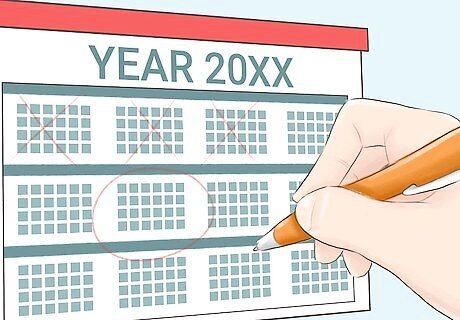
Anticipation Retirement is just around the corner, and you’re in full planning mode. Do you have enough saved up? What will your post-work day-to-day look like? How will you settle in? There’s plenty of anxiety, and plenty more excitement. Just a few more years, months, or even weeks before you’re let loose! During this stage, you may find that it’s hard to focus on work, or that you’re distracted by the thought of retirement. You might ask your boss for fewer responsibilities as your prepare to depart from your career.

Freedom Retirement! You’ve had your office going-away party, sent thank-you cards for the retirement gifts, and now your calendar is opened up before you. Your days are yours to do with what you will, and you’re on something of a honeymoon period with your retirement. Now’s the time to jump into those new hobbies or hop on a plane to explore all those places you dreamed of. This stage often occurs after the age of 62, when you’re eligible to receive Social Security benefits.

Adjustment The explosive excitement of retirement has died down a bit, and now you’re learning to adjust to retirement and navigate the nuances of post-work life. You’re focused on making sure your finances are in order and sustainable, and communicating with your family about your life’s new pace. Also called “early retirement,” this stage often happens around age 70. During this stage, some retirees experience disorientation or even depression—they find that their job provided purpose, and now they have to find a new purpose. The feeling is usually temporary though; it just takes a bit of time to find your new groove.

Mid- and late-retirement Some years after 70, you’ve gotten a hang of this whole retirement business, and you’re living your best, work-free life. Ideally, your finances are stable, your assets are ready to be divvied up, and you’ve found hobbies or activities to take up your time. Then, late retirement comes knocking, and you’re living out you’re golden years surrounded by family and friends.
Getting Ready to Retire

Get your finances in order so you have enough to live on. It’s not the most thrilling part of retirement, but you’ll need some savings if you plan to cut your income. In the years leading up to retirement, consider hiring an accountant, who can fill you in on what it’ll take to get your money right, including saving, investing, and taking advantage of Social Security. Also, ask your employer about your retirement or pension plan. Your HR or accounting department is able to fill you in on your benefits and what you need to know. In addition, start saving now! Put 10% of each paycheck into a retirement savings account, if you can. Some experts say you need 70-90% of your pre-retirement income in your post-retirement years in order to stay comfortable.
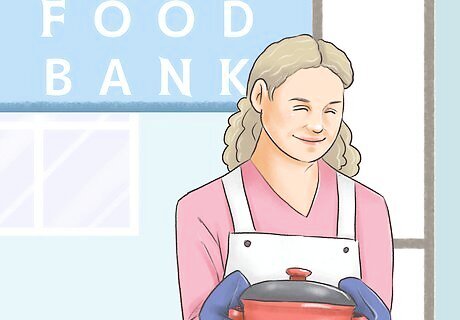
Plan to find your purpose in volunteering or other pursuits. For many, their job is their reason to get up in the morning. But after they ditch their job, that reason tends to vanish, and retirees are challenged to find other pursuits to fill their time and stay busy after retirement. Many turn to volunteering as a way to give back to their community. Some volunteer at food banks, schools, or nonprofit organizations like the Peace Corp. Alternatively, plan to take classes to hone your skills in hobbies like woodworking, or just pursue those hobbies independently. Now’s the time to take up painting so you can leave behind a legacy of masterworks!
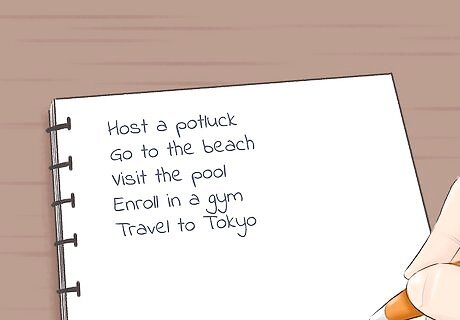
Make a list of leisure activities you want to experience. Of course, retirement isn’t all finances and finding your purpose. You’ve waited all these years to let loose and have fun, so have fun! Host parties or potlucks, hit the beach, or wile away a day (or several) by the pool. Write down everything you want to do bucket-list style, so that when the time comes, you’re armed and ready for leisure. In addition, consider traveling to new countries, joining a local retirees’ social club to meet other people enjoying life after work, or just catching up on all those books and magazines you never got around to reading.




















Comments
0 comment